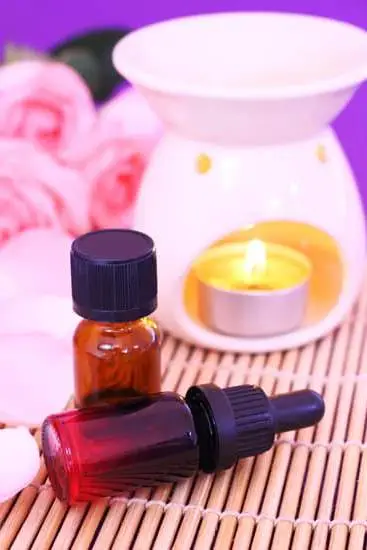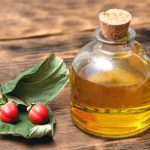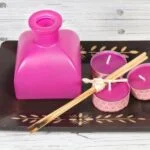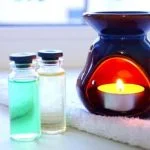Aromatherapy has been gaining popularity as a natural remedy for various ailments and as a way to promote overall well-being. One of the most common methods of using aromatherapy is through inhaling essential oils. In this article, we will explore the world of aromatherapy oils and specifically focus on the question: can people inhale aromatherapy oils safely?
Aromatherapy involves the use of essential oils extracted from plants, flowers, and herbs to promote physical and psychological health. These highly concentrated oils are believed to have therapeutic properties that can positively affect mood, alleviate stress, and even address physical discomforts. The practice of aromatherapy dates back thousands of years and continues to be utilized in various cultures around the world.
Inhaling aromatherapy oils is a popular method for experiencing their potential benefits. When the aroma molecules from the essential oils are inhaled, they stimulate the olfactory system and send signals to the brain, influencing emotions and physiological responses. This method is considered non-invasive and convenient, making it a preferred choice for many individuals seeking relief from everyday stress or looking to enhance their overall sense of well-being.
What Is Aromatherapy and How Does It Work
Aromatherapy is a holistic healing treatment that uses natural plant extracts to promote health and well-being. It is believed that the inhaled aroma from these “essential” oils can stimulate brain function. The term “aromatherapy” was first coined by the French perfumer and chemist René-Maurice Gattefossé in 1937.
How Does Aromatherapy Work?
Aromatherapy works through the sense of smell and skin absorption. When essential oils are inhaled, the scent molecules travel from the olfactory nerves directly to the brain and especially impact the amygdala, the emotional center of the brain. The amygdala is connected to the hippocampus, which stores and retrieves learned memories. This means that certain scents can evoke specific emotions or memories.
The Science Behind Aromatherapy
Studies have shown that inhaling essential oils can help reduce stress, anxiety, insomnia, and even depression. Some essential oils have antibacterial properties when they are inhaled, helping to cleanse the air we breathe. Research has also shown that inhaling certain essential oils can have a positive effect on physical health as well, such as reducing pain or improving digestion.
The Benefits of Inhaling Aromatherapy Oils
Aromatherapy has been practiced for centuries as a natural way to promote physical and mental well-being. One of the most common methods of using essential oils in aromatherapy is through inhalation. Inhaling aromatherapy oils can provide many benefits, both physically and emotionally.
Physical Benefits
When people inhale aromatherapy oils, the molecules are absorbed into the bloodstream through the lungs, which can have a direct impact on the body’s physiological systems. Certain essential oils have been found to have anti-inflammatory, antimicrobial, and analgesic properties. For example, inhaling eucalyptus oil can help relieve congestion and improve respiratory function, while lavender oil may help reduce headaches and promote relaxation.
Emotional Benefits
In addition to their physical benefits, inhaling aromatherapy oils can also have a profound effect on one’s emotions and mental state. Many essential oils are known for their ability to uplift mood, reduce stress and anxiety, and promote feelings of calm and relaxation. For example, inhaling citrus oils like lemon or orange can help boost energy and improve focus, while inhaling chamomile or rose oil can promote feelings of peace and tranquility.
Aromatherapy Diffusers
One popular method of inhaling aromatherapy oils is through the use of diffusers. These devices disperse essential oil molecules into the air, allowing them to be inhaled over an extended period of time. This method is convenient and effective for enjoying the benefits of aromatherapy throughout the day in homes or offices. However, it’s important to ensure that diffusers are used properly in well-ventilated areas to avoid excessive inhalation of essential oil vapors.
Overall, there are numerous benefits that can people inhale aromatherapy oils safely when done correctly using responsible methods such as diffusers or diluted mixtures in well-ventilated spaces.
Safety Precautions to Consider When Inhaling Aromatherapy Oils
Aromatherapy is a holistic healing treatment that uses natural plant extracts, also known as essential oils, to promote physical and emotional well-being. These essential oils are derived from various parts of plants such as flowers, leaves, stems, bark, and roots. The potent aroma and therapeutic properties of these oils make them popular for use in aromatherapy.
When inhaling aromatherapy oils, it is important to consider safety precautions to prevent any adverse effects on health. One of the most crucial safety precautions is to dilute the essential oils before inhalation. Undiluted essential oils can be too strong and may cause irritation or allergic reactions when inhaled or applied directly to the skin. Diluting them with a carrier oil like coconut oil or almond oil can help reduce their potency while still providing their therapeutic benefits.
Another important safety precaution when inhaling aromatherapy oils is to ensure proper ventilation in the room where the oils are being diffused or inhaled. Poor ventilation can lead to the buildup of strong odors and may cause headaches or respiratory irritation for some individuals. It’s best to use a diffuser that allows for controlled dispersal of the oils in a well-ventilated space.
Proper storage of aromatherapy oils is also crucial for ensuring safety when inhaling them. Essential oils should be stored in dark glass bottles away from direct sunlight and heat to prevent them from deteriorating or oxidizing quickly. This helps maintain their potency and prevents any potential harmful chemical reactions that can occur with prolonged exposure to light and heat.
| Safety Precautions | Considerations |
|---|---|
| Dilution | Essential oils should be diluted with carrier oils |
| Ventilation | Ensure proper ventilation when using a diffuser |
| Storage | Store essential oils in dark glass bottles away from sunlight and heat |
Different Methods of Inhaling Aromatherapy Oils
Inhaling aromatherapy oils is a popular method of enjoying the therapeutic benefits of essential oils. There are several different methods for inhaling these oils, each with its own unique advantages. One common method is using a diffuser, which disperses the essential oil molecules into the air for inhalation. This can create a pleasant and calming atmosphere in your home or workspace while reaping the benefits of the oils.
Another method is direct inhalation, where a few drops of essential oil are added to a tissue or cotton ball and then breathed in directly. This method is convenient and can be used on the go for quick relief from stress or fatigue. Inhaling steam infused with aromatherapy oils is also an effective method, as the hot water vapor helps to carry the essential oil molecules into your respiratory system for maximum benefit.
It’s important to note that not all methods of inhaling aromatherapy oils are safe for everyone, particularly those with respiratory conditions such as asthma or COPD. Furthermore, it’s crucial to use high-quality, pure essential oils to avoid any negative reactions when inhaling them. Always consult with a healthcare professional if you have any concerns about using aromatherapy oils for inhalation.
| Different Methods | Advantages |
|---|---|
| Diffuser | Creates pleasant atmosphere |
| Direct Inhalation | Convenient and quick relief |
| Inhaling Steam | Maximizes respiratory benefits |
Popular Aromatherapy Oils and Their Uses
When it comes to aromatherapy, there are a variety of essential oils that are commonly used for their therapeutic properties. Each oil has its own unique scent and benefits, making them suitable for different purposes. Here are some popular aromatherapy oils and their uses:
- Lavender: Known for its calming properties, lavender oil is often used to promote relaxation and improve sleep quality. It can also help alleviate symptoms of anxiety and stress.
- Peppermint: Peppermint oil is commonly used to enhance focus and concentration. It can also help relieve headaches and migraines when inhaled.
- Tea Tree: With its antibacterial and antifungal properties, tea tree oil is often used to treat respiratory issues such as coughs, colds, and sinus infections.
- Lemon: Lemon oil is known for its uplifting citrus scent, making it a popular choice for boosting mood and reducing feelings of fatigue or exhaustion.
These are just a few examples of popular aromatherapy oils and their uses. It’s important to note that while these oils have many benefits when inhaled, they should always be used with caution.
It’s crucial to do your research on each essential oil before using it for aromatherapy purposes. Some oils may cause adverse reactions in certain individuals or interact with medications. Additionally, not all essential oils are safe for direct inhalation – some may need to be diluted before use.
Can People Inhale Aromatherapy Oils Safely?
Aromatherapy oils have been used for centuries as a natural way to improve physical and mental well-being. These essential oils are derived from plants, flowers, herbs, and trees, and are known for their therapeutic properties. Inhaling aromatherapy oils is one of the most common ways to experience their benefits. But can people inhale aromatherapy oils safely?
Inhaling aromatherapy oils can provide a range of benefits, including stress relief, improved mood, better sleep, and relief from respiratory issues. However, it’s important to use these oils with caution, as improper use could lead to adverse effects. Here are some safety precautions to consider when inhaling aromatherapy oils:
- Always dilute essential oils before inhaling them directly. Undiluted essential oils can be too potent and may cause skin irritation or allergic reactions.
- Pregnant or nursing women should consult with a healthcare professional before using aromatherapy oils.
- Keep essential oils away from children and pets, as some oils can be toxic if ingested.
- Be mindful of any existing health conditions or allergies that may be aggravated by certain essential oils.
It’s also important to use high-quality essential oils from reputable sources to ensure their purity and safety for inhalation purposes. In addition to inhalation, aromatherapy oils can also be used topically or in diffusers to enjoy their therapeutic benefits without the potential risks associated with direct inhalation.
Conclusion
In conclusion, the verdict on inhaling aromatherapy oils is that when done safely and in moderation, it can be a beneficial practice for overall well-being. Aromatherapy has been used for centuries as a holistic healing treatment, and the act of inhaling essential oils can have a positive impact on physical, emotional, and mental health. However, it is important to consider safety precautions and consult with a qualified practitioner before incorporating aromatherapy into your daily routine.
The benefits of inhaling aromatherapy oils are numerous, ranging from stress relief and relaxation to improved sleep quality and enhanced mood. Different methods of inhalation such as diffusing, steaming, or using personal inhalers can provide unique experiences and therapeutic effects. It’s crucial to educate oneself on the proper usage of essential oils and the potential risks involved in order to avoid adverse reactions or complications.
Overall, while people can inhale aromatherapy oils safely when practiced responsibly, it is crucial to exercise caution and be aware of individual sensitivities or allergies. By understanding the various methods of inhalation and choosing high-quality essential oils from reputable sources, individuals can benefit from the therapeutic properties of aromatherapy without putting their health at risk. With proper education and care, incorporating aromatherapy into one’s self-care routine
Frequently Asked Questions
Is It Safe to Inhale Aromatherapy Oils?
Inhaling aromatherapy oils can be safe when done in moderation and with proper dilution. However, some individuals may be sensitive to certain oils and experience adverse reactions, so it’s important to use caution.
What Essential Oils Are Safe to Breathe In?
Essential oils that are generally considered safe to breathe in include lavender, eucalyptus, peppermint, and tea tree oil. These oils have been used for their aromatic properties and therapeutic benefits when inhaled properly.
Are There Any Benefits to Inhaling Essential Oils?
There are potential benefits to inhaling essential oils, such as promoting relaxation, reducing stress and anxiety, improving sleep quality, and easing respiratory symptoms. Different oils may offer various benefits, so it’s important to choose ones that suit individual needs and preferences.

Are you looking for a natural way to improve your health and wellbeing?
If so, aromatherapy may be the answer for you.





